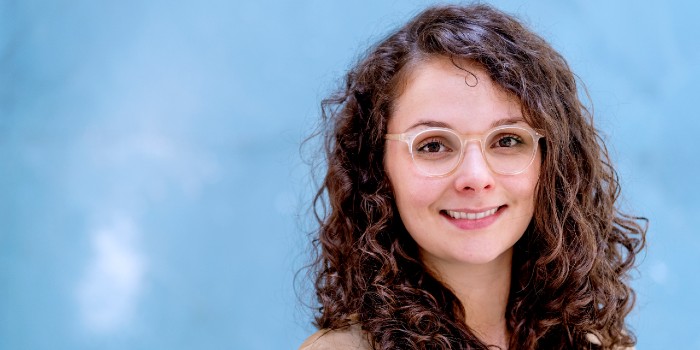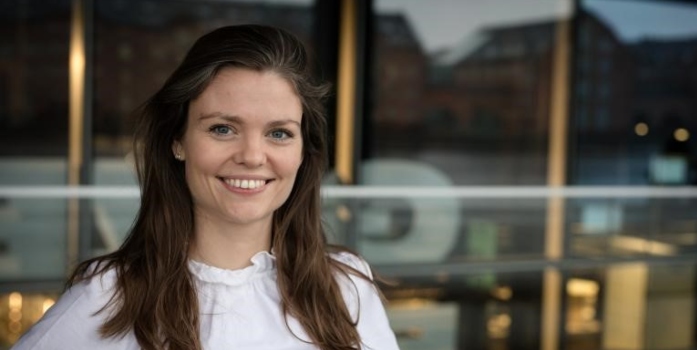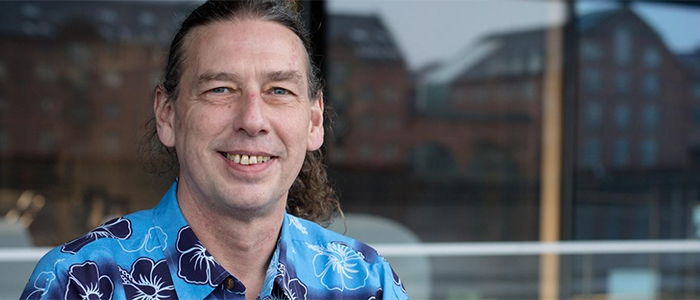In areas as diverse as production optimization, diabetes treatment, and climate adaptation, three newly hatched PhD candidates from DTU excel in their dissertations by delivering research-based innovation that may also prove to be good business. They are: Alexandria Trattner, Tinna Bjørk Aradottir, and Carlo Sass Sørensen.
Researcher slims production, saving company millions
The more different products you have on the shelves, the higher the costs. This applies in particular to industrial companies where production lines need to be converted each time a new product is manufactured.
Using a new analysis tool, Alexandria Trattner helped the ROCKWOOL Group halve the number of products manufactured by ensuring that the products offered are only those providing value to customers and to the company.
“Alexandria has developed analysis tools that can quantify each product by showing net sales, gross profit, and gross profit per production hour. These figures have formed the basis for deciding which ROCKWOOL products should be continued and which should be phased out,” says Lars Hvam, Professor at DTU Management and project supervisor.

Overall, fewer products also result in fewer production shifts, and the company has therefore been able to increase its production capacity. For a company with billions in revenue, this translates into a significant bottom-line figure.
Support and resources from management are essential for this type of analysis to yield results. But with those factors in place, Alexandria believes that her research results could also be implemented within other medium-sized and large industrial companies.
“Naturally, the economic and operational gains will not be the same everywhere, but I think that e.g. manufacturers of pharmaceuticals, food, beverages, and enzymes might benefit from the methods,” she says.

From clinical progress to improved quality of life with type 2 diabetes
Tinna Bjørk Aradottir, Industrial PhD from DTU Compute and Novo Nordisk, based her PhD dissertation on the fact that type 2 diabetes is a growing global problem afflicting an increasing part of the world’s population, and a condition which can be difficult to medicate optimally in everyday life.
“Despite medical advances, many successful clinical trials of new insulin products, and new ways of administering them, diabetes patients often don’t achieve the full effect of medical advances. This is because, outside of a clinical environment, it’s difficult to use insulin products and dosing units at exactly the right times and in exactly the right doses. Therefore, patients do not get the full effect from new and better products—nor the associated boost in quality of life,” explains Tinna Bjørk Aradottir.
Sub-optimal use of insulin products is primarily due to three factors: That patients do not experience the need for medication, that it is difficult to get an overview of the complexity of treatments, and that many sufferers fear a low blood sugar level. This is why Tinna Bjørk Aradottir focused her work on developing and testing new concepts which will make it easier for patients themselves to dose properly and when required.
Effective algorithms and 15 patent applications
“By using real-time data from ‘smart’ insulin pens during use and other data from continuous glucose meters, I collaborated with Novo Nordisk to develop algorithms which adapt the recommended dose and dosage time to the patient’s medical history. This method has the potential to effectively assist and guide diabetics based on their treatment plan. The solution can be integrated into dosing units to allow users to get the information when and where they need it.”
The results of Tinna Bjørk Aradottir’s PhD dissertation are, logically, still far from a market introduction, but since Novo has seen fit to file no less than 15 patents based on her work, there is a good chance that Tinna Bjørk Aradottir’s innovative solutions will find their way into Novo’s product portfolio in future.

Denmark’s coastal areas get help in protection against climate change
The polar ice is melting and ocean water levels are rising globally. And on top of that, there are several areas in Denmark where the soil is settling and the ground thus sinking. This already presents challenges for infrastructure and sewerage in coastal communities—challenges that will only increase in future.
Therefore, it is essential that authorities and other key players become better at including climate adaptation into, for example, infrastructure project planning. However, this requires knowledge of how water and land behave—and that is precisely what industrial researcher Carlo Sass Sørensen has been worked intensively with for several years. He has now been awarded Innovation Fund Denmark’s Industrial Researcher Prize for his pioneering work in the use of surveying techniques and satellite data to map ground-settling areas, and he has thus demonstrated their impact on flood hazards in coastal areas.
During the period 2014-2018, he has been writing a PhD dissertation from DTU Space in collaboration with the Danish Coastal Authority and the Danish Agency for Data Supply and Efficiency. Working together with consulting engineering firm Geo, specialists in soil and hydrographic surveys, he has also developed digital underground maps and created a model which can enable researchers to anticipate and thus prepare for which areas will face water challenges in future, making it possible to involve them in the climate adaptation.
Much of Carlo Sass Sørensen’s work has been aimed at involving players across disciplines, sectors, authority levels and public agencies, to allow the challenges of future climate challenges to be seen in wider contexts.
And this, he believes, is crucial in order to succeed with climate adaptation of Danish coastal communities.
“You can’t sit in each your office with each your excellent climate adaptation solution. We need to break down the silos, compare future climate impact with geodata, and work across industries—publicly and privately,” he says.
The Industrial Researcher Prize honours the most talented industrial PhD students/industrial postdocs from Innovation Fund Denmark’s talent programme, who have combined a high level of research expertise with a strong business sense and created a commercial impact for a company. The prize is a personal honorary cash prize of DKK 50,000, which the recipient may use as they see fit.